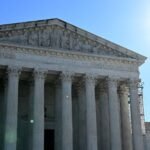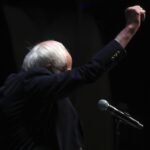Now Reading: Miller oversees Venezuela airstrikes in drug war effort
-
01
Miller oversees Venezuela airstrikes in drug war effort
Miller oversees Venezuela airstrikes in drug war effort

Article Summary
In recent actions, the Trump administration confirmed a U.S. airstrike on September 2, which destroyed a Venezuelan speedboat accused of smuggling drugs. This incident resulted in the deaths of all 11 individuals on board. A subsequent strike killed three more individuals, who Trump claimed were “confirmed narcoterrorists.” Critics have labeled these operations as “lawless,” arguing they violate international norms since they occurred outside an active theater of war and directly targeted civilians.
Miller has been vocal about his belief that Venezuela operates as a “narco-state,” blaming the country’s leadership for deep-rooted drug trafficking. He describes the Maduro regime as a drug cartel rather than a legitimate government. This characterization has fueled justifications for military actions against Venezuela, despite a lack of evidence linking the victims of these strikes to narcotics trafficking.
Eyewitness accounts further complicate the narrative. A woman, claiming to be the wife of one victim from the September 2 strike, asserted that her husband was a fisherman and had no involvement in drug activities. This contradicts the administration’s portrayal of the airstrikes as targeted actions against criminal elements.
Overall, Miller’s expanded role and the controversial airstrikes signal a significant shift in U.S. foreign policy towards Venezuela, raising ethical questions about the actions taken against alleged drug traffickers and the wider implications for civilians caught in the conflict.













